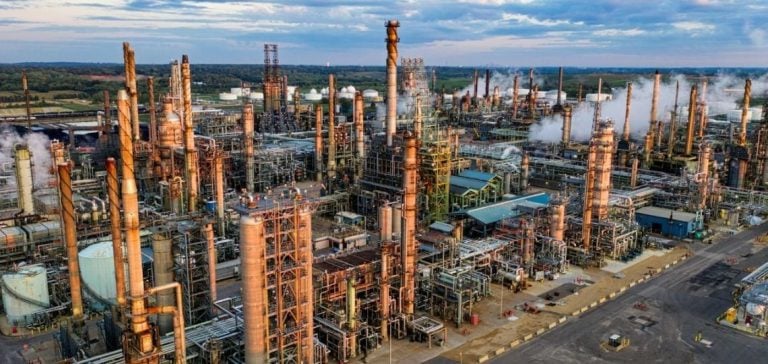Mexico’s oil and gas sector is going through a period of significant transformation, marked by legal reforms that are raising concerns about the independence of the judiciary.
These changes, driven by the outgoing president, aim to strengthen executive control over the judiciary, which could have repercussions for the country’s democracy and its trade relations, particularly with the United States.
Against this backdrop, companies in the sector are calling for greater cooperation to exploit domestic resources and reduce dependence on foreign fuels.
The reforms, which have been ratified by a majority of local congresses, are seen by many experts as a turning point in the country’s governance.
Speaking at a forum organized by the Wilson Center, Francisca Pou Giménez, senior researcher at the Legal Research Institute of the National Autonomous University of Mexico, said,
“The reform will destroy the independence and capacity of the judicial system and erode many of the advances made in this sector over the years.”
This increased concentration of power in the hands of the executive could leave some parts of the population unprotected, according to Carlos Ugalde, director of consulting firm Integralia Consultores.
He points out that the real challenge for the bilateral relationship with the United States lies in Mexico’s inability to manage the influence of organized crime on elections.
Call for cooperation
Despite these concerns, private players in Mexico’s oil and gas sector insist on the need for greater collaboration to develop the country’s vast resources.
At a national oil and gas convention, participants pointed out that other countries in the region, such as Guyana and Brazil, have been successful in attracting investment thanks to favorable policies.
Craig Kelly, senior director of international government affairs at ExxonMobil, noted that the stability offered by the Guyanese government has been crucial in attracting more than $50 billion in oilfield development investment.
Opportunities in Mexico often lie in hard-to-reach areas, such as deep water, requiring considerable investment that companies cannot make on their own.
Stephane Drouaud, Vice President of the Trion project at Woodside Energy, said: “We need to identify the key drivers and work together. We can’t do it alone.”
The Trion project is currently the only deepwater oil project under development in the country.
Focus on gas
Convention participants also called on the government to examine the development potential of unconventional deposits, particularly those related to gas.
According to data from the National Hydrocarbons Commission, Mexico has around 110 billion barrels equivalent of prospective resources, of which 65 billion barrels are in unconventional deposits.
Marco Vera, GE Vernova’s head of Latin America and the Caribbean, stressed that the country should explore all its options, including unconventional and deepwater deposits.
Mexico’s natural gas production of around 2 billion cubic feet per day is mainly used in Pemex’s upstream operations.
However, total gas demand in the country is expected to grow at a compound annual growth rate of 1.6% until 2050, according to S&P Global Commodity Insights.
This growth will be driven primarily by demand from the power sector, which is expected to reach 8.2 billion cubic feet per day by 2050.
As domestic production declines and demand increases, pipeline gas imports from the USA are expected to account for an increasing share of total supply.
Challenges and opportunities
Mexico’s growing dependence on natural gas imports poses risks to the country’s energy security.
Carlos Pascual, senior vice president for global energy and international affairs at Commodity Insights, warned that “no country in the world, with the exception of North Korea, develops its energy sector solely with government funds.”
This underscores the importance of a collaborative approach to mobilizing the investment needed to develop national resources.
Mexico’s oil and gas companies are at a crossroads.
While legal reforms could restrict their ability to operate effectively, the need for greater cooperation to develop national resources is more pressing than ever.
Market players have to navigate a complex environment, where political stability and the ability to attract foreign investment will be decisive for the future of the sector.






















